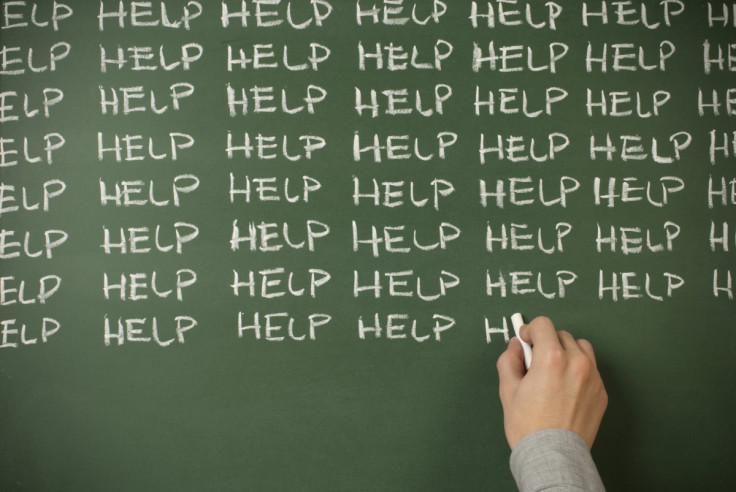Like many, I left teaching because the government ruined it. Now it spends £1bn on supply teachers

In October, a poll carried out by YouGov revealed 53% of teachers in England were considering quitting their jobs within two years. Between November 2013 and November 2014, a record 49,120 teachers decided to leave their profession entirely and in the same period, applications to become teachers fell.
It is unsurprising, then, that schools now spend £1.3bn per year on supply teachers, money that could pay for more than 50,000 teachers on their average salary across the UK. The figure, which emerged last week, is almost £300m higher than it was two years ago.
This news should cast serious doubt on politicians' claims about the state of the education system. Prime Minister David Cameron said in major speeches at the start of both the last parliament and this one that he was committed to delivering "more for less in our public services". In an era of cuts – and education spending per pupil will fall by 8% in real terms in this parliament, according to the Institute for Fiscal Studies – we are told our children's education will get better. We think we can have both affordability and optimum output.
The government supports this by claiming education policy as one of its most significant successes. One of the Conservative Party's most repeated lines during the election campaign was that one million more children were in "good" or "outstanding" schools than in 2010 (the Department for Education press office has since updated the figure to 1.4 million).
But spending more money on staff who should rarely be necessary shows taxpayers are not getting "more for less". The rapid chase to provide education that the government considers "good" or "outstanding" is justifying wasteful spending on a managerial, target-chasing culture that is narrowing children's horizons and driving away the staff schools need.
The rapid chase to provide education which the government considers 'good' or 'outstanding' is justifying wasteful spending on a managerial, target-chasing culture which is narrowing children's horizons and driving away the staff schools need
During the last parliament, for example, Ofsted's "satisfactory" grade was changed to "requires improvement" ("satisfactory is no longer satisfactory", we were told earnestly).
This allowed the government to say more "good" schools had been created without extra expense. But the new grade tightened Ofsted's grip on the education system and made schools try anything they thought might gain the approval of inspectors, no matter how feasible or sensible it was.
Similarly, schools have been encouraged to give top priority to their children's test grades. Primaries are defined by the percentage of their children who reach level four in Sats exams. For secondary schools, the holy grail of five A*-C grades, including in maths and English, has this year been replaced by Progress 8 – a largely unfathomable algorithm that all but guarantees some schools will always be underperforming. And now, the education secretary has promised a crackdown on schools whose exam outcomes suggest they are "coasting".
But though threats, top-down change and the inevitable rash of resulting initiatives can drive numbers up, they de-professionalise and demean teachers. Teaching that goes beyond test and exam syllabuses becomes tokenistic; poor behaviour is tolerated as a lesser priority.
The children are treated as statistics, taught to see their teachers as service providers and overly exposed to the stressful atmosphere of modern schools – hence the 200% increase in calls to ChildLine about exam stress since 2012-13. And schools that have less money are required to hire more managers, who give teachers more work to do – making unsustainable workloads the norm.
The children are treated as statistics, taught to see their teachers as service providers
This culture drove me out of teaching,and it is encouraging others to quit too. Last year, Debra Kidd, who had taught for more than 20 years, wrote that she was leaving because "I see colleagues destroyed by judgments that I know to be false... I see children channelled into becoming automatons". In April, Ali Simpson explained teaching was "not the job any more" and she was growing "increasingly resentful for the time I was spending on the children in my class, as opposed to my own children".
High turnover creates problems and supply teachers are particularly poorly placed to deal with them. They are likely to lack subject knowledge and the authority and school-specific experience that would help them to establish themselves. And their fleeting role only exacerbates the cynicism of those children who are used to adults abandoning them.
The problems in our schools go beyond the coalition and Tory governments. Although New Labour increased spending on education, its platform of reform based on measurable outcomes drove teachers away for similar reasons. Meanwhile, the No Child Left Behind Act – introduced in 2001 and replaced just this month – has become synonymous with onerous standardised tests in the US.
We must all choose whether we want our teachers to meet targets or to inspire and educate the next generation. Trying to make them do both is proving unworkable and unaffordable. If we really want more for less in schools, we must stop treating our teachers as pawns in a political game.
Chris Sloggett is a former teacher and a writer at The Day. He is currently writing a book on target culture in education.
© Copyright IBTimes 2025. All rights reserved.




















